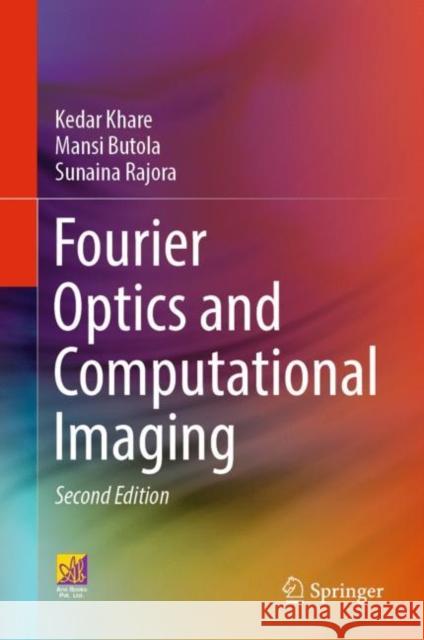Fourier Optics and Computational Imaging » książka
Fourier Optics and Computational Imaging
ISBN-13: 9783031183522 / Angielski / Twarda / 2023 / 294 str.
Fourier Optics and Computational Imaging
ISBN-13: 9783031183522 / Angielski / Twarda / 2023 / 294 str.
(netto: 421,70 VAT: 5%)
Najniższa cena z 30 dni: 424,07
ok. 16-18 dni roboczych.
Darmowa dostawa!
The book is designed to serve as a textbook for advanced undergraduate and graduate students enrolled in physics and electronics and communication engineering and mathematics. The book provides an introduction to Fourier optics in light of new developments in the area of computational imaging over the last couple of decades. There is an in-depth discussion of mathematical methods such as Fourier analysis, linear systems theory, random processes, and optimization-based image reconstruction techniques. These techniques are very much essential for a better understanding of the working of computational imaging systems. It discusses topics in Fourier optics, e.g., diffraction phenomena, coherent and incoherent imaging systems, and some aspects of coherence theory. These concepts are then used to describe several system ideas that combine optical hardware design and image reconstruction algorithms, such as digital holography, iterative phase retrieval, super-resolution imaging, point spread function engineering for enhanced depth-of-focus, projection-based imaging, single-pixel or ghost imaging, etc. The topics covered in this book can provide an elementary introduction to the exciting area of computational imaging for students who may wish to work with imaging systems in their future careers.
The book is designed to serve as a textbook for advanced undergraduate and graduate students enrolled in physics and electronics and communication engineering and mathematics. The book provides an introduction to Fourier optics in light of new developments in the area of computational imaging over the last couple of decades. There is an in-depth discussion of mathematical methods such as Fourier analysis, linear systems theory, random processes, and optimization-based image reconstruction techniques. These techniques are very much essential for a better understanding of the working of computational imaging systems. It discusses topics in Fourier optics, e.g., diffraction phenomena, coherent and incoherent imaging systems, and some aspects of coherence theory. These concepts are then used to describe several system ideas that combine optical hardware design and image reconstruction algorithms, such as digital holography, iterative phase retrieval, super-resolution imaging, point spread function engineering for enhanced depth-of-focus, projection-based imaging, single-pixel or ghost imaging, etc. The topics covered in this book can provide an elementary introduction to the exciting area of computational imaging for students who may wish to work with imaging systems in their future careers.











